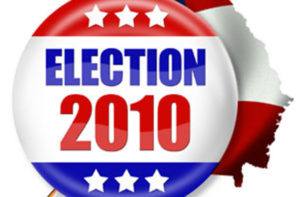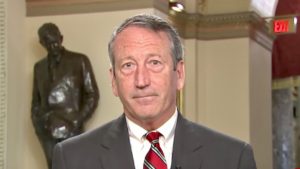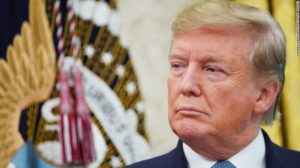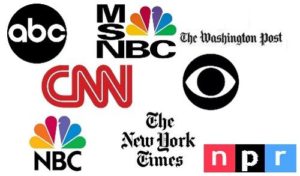An overwhelming majority of Republicans support Donald Trump’s reelection to the presidency. But not all. Former Congressman Joe Walsh of Illinois announced his quixotic candidacy over the weekend. His chances of success – are about zero.

I know Joe somewhat, because we were both elected to Congress back in 2010. Republicans took back the House that year, after losing it in 2006. It was Joe’s first election to Congress: my second, as I’d been part of the Newt Gingrich Republican Revolution of ’94, when Republicans took over the House for the first time in 40 years. Joe only served one term, as he failed to win reelection in 2012. I’m, of course, still there.

Joe’s a nice enough guy, smart, outspoken, conservative, but he’s not gonna beat Trump in a primary. Neither is Bill Weld, former Republican governor of Massachusetts, who also recently announced his decision to take on Donald Trump in the Republican primary. And neither would former Congressman Mark Sanford of South Carolina, who’s been openly discussing such a possibility with reporters in recent weeks.


The real question is whether or not any of these Republican rivals would sufficiently weaken President Trump so as to make him more vulnerable versus his Democratic opponent in the fall. And there is a history of presidents being weakened by serious primary challenges. Here are three examples, in relatively recent political history.

President Gerald Ford was primaried by Ronald Reagan in 1976. Ford prevailed at the Kansas City Republican Convention, but just barely. He was weakened by the primary challenge, and he went on to lose, narrowly, to Jimmy Carter in the fall.

Four years later, 1980, then-president Jimmy Carter was primaried by Senator Ted Kennedy. This was expected to be a major challenge to Carter, but Kennedy stumbled badly right out of the box when he mumbled through a television interview with reporter Roger Mudd, not even being able to state clearly why he wanted to be president. Nonetheless, Carter got soundly defeated by Ronald Reagan in the fall.

Then there’s Reagan’s successor to the presidency, George Herbert Walker Bush. Bush had deftly handled a major challenge on the international scene, overcoming Saddam Hussein’s takeover of Kuwait. But back at home, the economy was weak, and Pat Buchanan launched a primary challenge to Bush. Bush won, but was weakened for the upcoming general election, when Bill Clinton (and to some extent, Ross Perot), beat him. Another example of an incumbent president, limping out of a primary, only to be defeated in the upcoming general election.

So is this likely to happen to Donald Trump in the current political environment? I don’t think so. President Trump has a solid position with the Republican base. Outside a relatively small group of Republican “never Trumpers” his core support is solid. However, I do have a concern.

The mainstream press hates President Trump so much, that they may well be inclined to give any Republican primary challengers far more coverage than they’re due. We already have all the Democratic presidential candidates spewing their disdain for Donald Trump at every opportunity. On top of that, add the everyday news coverage, which is almost always conveyed to the public in a way detrimental to the President. Now add to that a third anti-Trump element – the “and even Republicans oppose Donald Trump…” storyline. At what point do we reach a critical mass of anti-Trump news coverage, that makes it impossible for the President to get his message across? It’s an open question.

So in conclusion, no, I don’t think any of the Republican Trump rivals have a chance of making a dent in his candidacy. In fact, I think their impact will be negligible. But keep an eye on the mainstream press effort to use their candidacies as yet another way to undermine this President.

